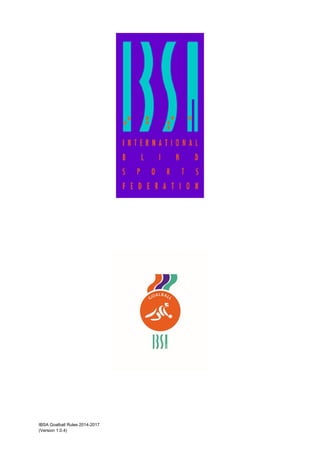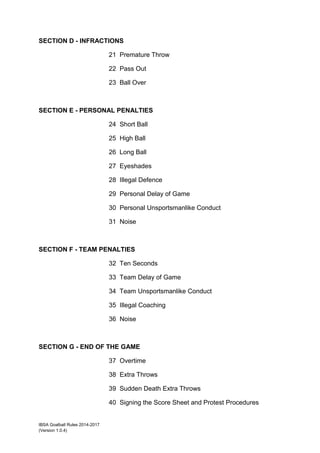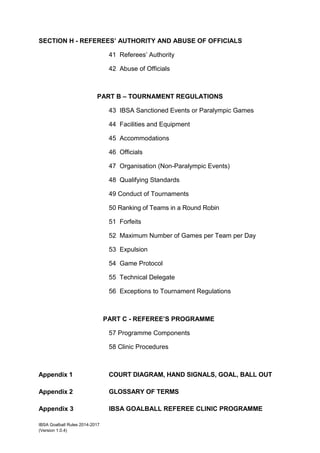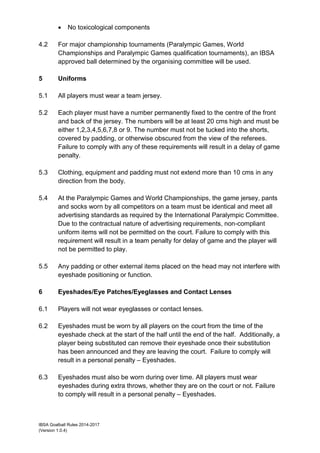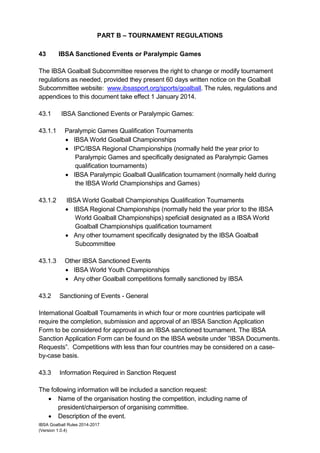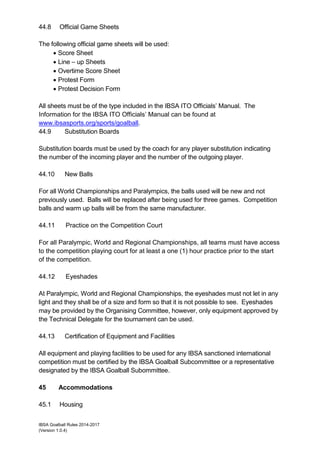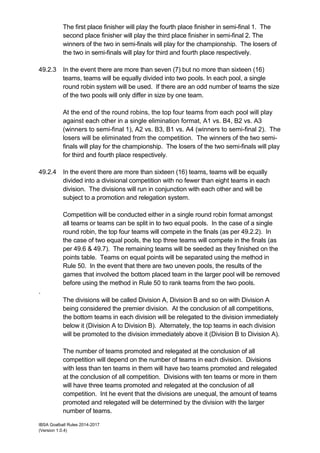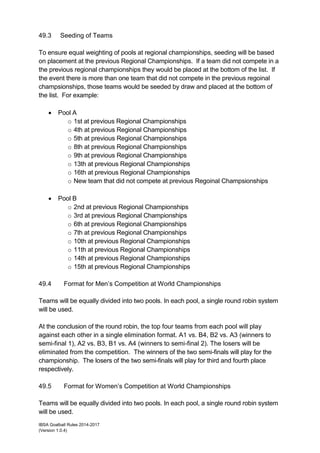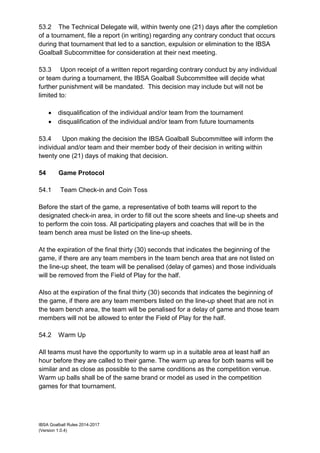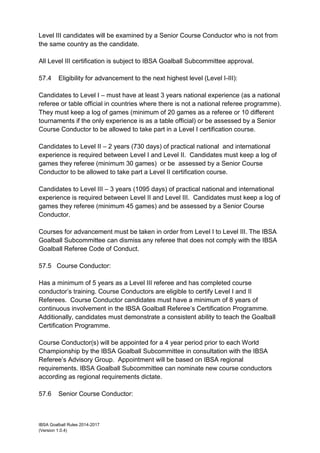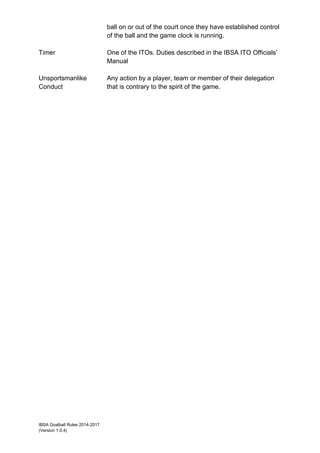Goalball is a team sport for visually impaired athletes played on a court with goals at each end. The rules are overseen by the International Blind Sports Federation. Key aspects of the game include:
- Teams of 3 players try to throw a ball with bells into the opponent's goal.
- The court is divided into zones and players must remain on their own side.
- Players wear eyeshades or patches and throw the ball along the floor to score points.
- Specific equipment, uniforms, and field specifications are outlined to ensure safety and fairness.
